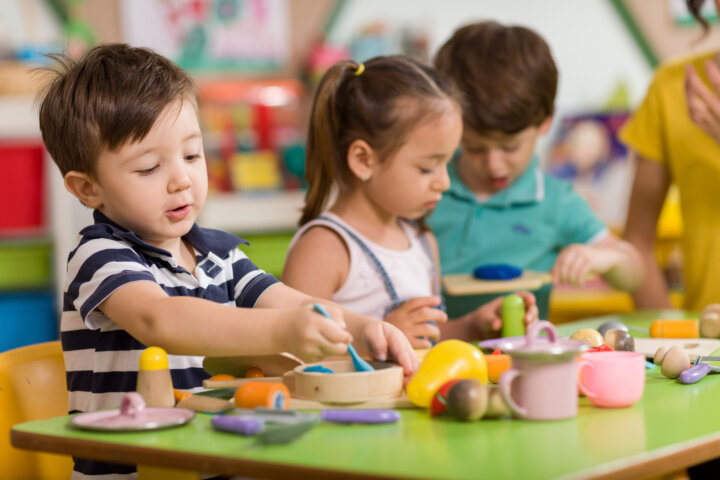Med blicken på möten. Bubers pedagogiska idé i dialog med förskolans praktik
Maria Fredriksson vill med sin avhandling utveckla en fördjupad kunskap om möten mellan barn och pedagoger i en förskolepraktik.
Maria Fredriksson
Professor Sara Irisdotter Aldenmyr, Högskolan Dalarna Professor Ann Quennerstedt, Örebro universitet Boglárka Straszer, Högskolan Dalarna
Professor Jonas Aspelin, Högskolan Kristianstad
Högskolan i Dalarna
2019-12-06
Med blicken på möten. Bubers pedagogiska idé i dialog med förskolans praktik
Abstract in English
This thesis aims to develop knowledge and empirical understanding relating to encounters between preschool children and their teachers. Supported by Martin Buber’s philosophy of dialogue and research, it describes the interpersonal encounters between preschool children and their teachers as being the most significant aspect of educational practice as well as foundational for learning. This doctoral thesis comprises two studies, both of which are video-documented observational studies conducted at a preschool that had 53 children and ten teachers.
The first study, which is a summarised rewrite of a published licentiate thesis, examines dialogue as being a form of qualitative encounter between teacher and child. The focus of interest is the effect on a dialogue when more children join one already in progress. Results demonstrate that the dialogue can be interrupted; interrupted and then resumed with a new participant; interrupted and then resumed without a new participant; or simply continued without a new participant. It is the action on the part of the teacher in these situations that seems to have the greatest effect.
The second study focuses on the preconditions of educational encounters. Of interest here are the following questions: what aspects of a teacher’s actions can be understood as forming the preconditions of educational encounters?; what aspects of teaching are significant when it comes to opportunities for educational encounters?; and how can relationship- and knowledge-building dimensions of educational encounters be considered intertwined?
Results demonstrate that teachers’ actions that serve to create the preconditions of educational encounters are often everyday and spontaneous, where attentiveness, tolerance, affirmation and extending are significant. These actions often occur simultaneously and are affected by the actions of the children. Together, the results provide opportunity to put words to and highlight how small everyday actions on the part of the teacher can be considered fundamental for educational encounters that simultaneously build relationships and knowledge.
Relaterade länkar

Svenska som andraspråk
 Åk F–Vux
Åk F–Vux
När leken inte fungerar
 Fsk
Fsk


